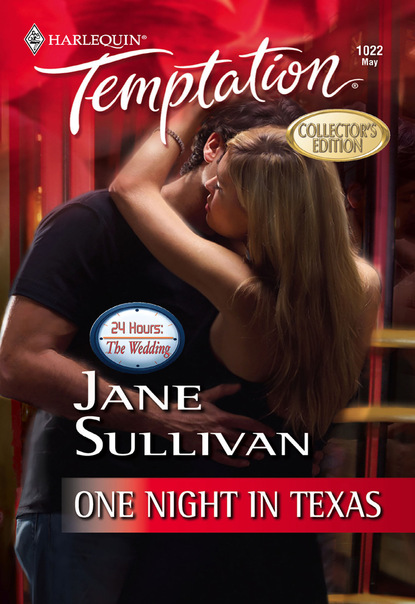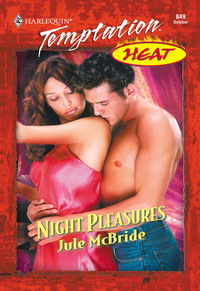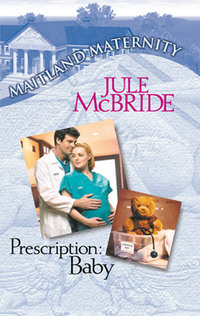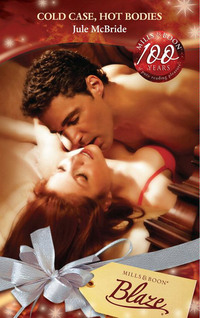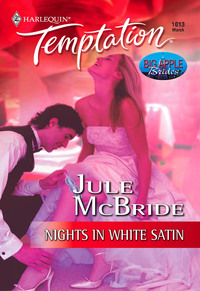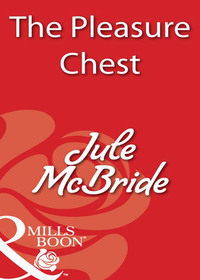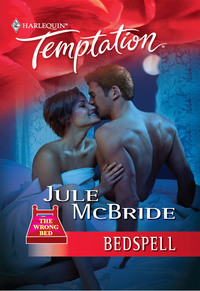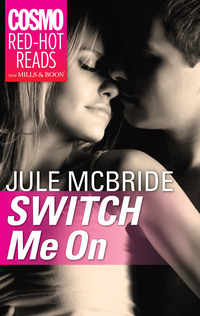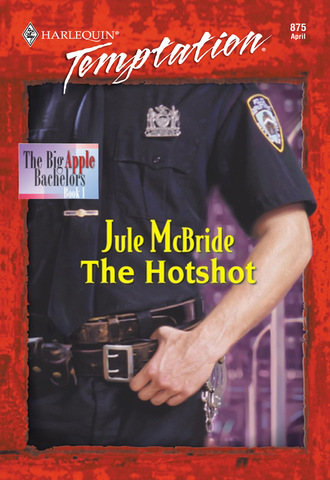
Полная версия
The Hotshot
“A stringer’s on it.”
Not about to worsen the situation by making a scene, Trudy waited until the meeting was over and the others filed out before turning to her boss and saying exactly what was on her mind. “If this is the kind of work you want me to do, why did you even bother to hire me?”
“Your assignment’s a good one, Trudy.”
“It’s busy work,” she pushed back.
“High profile. You’ll liaise with the mayor.”
Maybe. But that wasn’t the kind of reporter she was meant to be. She’d had this same conversation with her father and brother for years, whenever they handed her grunt work, hoping to discourage her from working for the Herald. The ploy had worked. She’d left the Herald in a huff. But she was not leaving the New York News, and she intended to get real stories. The hard stuff.
“The Glass Slipper,” she reminded, not usually one to toot her own horn, but understanding she no longer had a choice. “I thought of calling it that. The name sold papers, Dimi. The allusion to Cinderella and Prince Charming captured the imagination of our readership.”
The case had begun two months ago when wealthy, famous female New Yorkers began reporting the bizarre theft of expensive, custom-made shoes. At this point, over a hundred pairs were missing from over a hundred apartments, and the police, unable to discern a motive and confused by how the thief gained access to so many well-guarded homes, were hot to solve the crimes.
Trudy had written the News’s first headline, “Can These Cinderellas Find Their Glass Slippers?” Her next was, “Who is Prince Charming?” Ever since, along with the growing lottery jackpot, the story had captured the imagination of news-hungry New Yorkers. Newspaper sales had skyrocketed.
“Circulation’s up,” she continued. “And we’re getting more hits online, too.”
“Your contribution’s been noticed,” Dimi conceded. “And soon, Trudy, we’ll have a hot tip that’s—”
“Right for me?” She wasn’t in the habit of cutting off her boss, but she’d reached the end of her rope. “I’ve been here two years. I’ve been patient. I’ve gophered. I’ve gotten coffee, picked up lunch and worked double time. Just how many dues do you expect me to pay before you’ll let me wedge a toe in your old buddy club?”
Dimi considered. “You think this is a chauvinist atmosphere?”
“How could I not feel discriminated against?” she returned, not backing down. She’d have left before now, but she wanted the experience of working on the nation’s longest running daily, even if she cursed the ambition that made her want to conquer it. She could almost hear her father’s voice. “You’re cute, Trudy. If you want to go into news, why don’t you try television?” Occasionally, he’d generously point to weather girls as models.
Trudy Busey was no weather girl.
Dimi stared at her as he peeled silver foil from a roll of antacids and began chewing one—all the while thinking he ought to give in and do what doctors kept telling him: lose weight. But then, doctors didn’t understand the pressures of being an editor in a big-city newsroom, no more than the stress of managing people like Trudy. She wanted the Glass Slipper and lottery stories? Well, the distressing fact was, she deserved them.
“Why did you bother to hire me?” she asked again.
Because she’d possessed two main prerequisites for the job, Dimi thought now. She was eager and pushy. During their interview, she’d been fiercely determined. Along with college newspaper clippings, she’d submitted human interest stories she’d written for her father’s newspaper, and Dimi easily read between the lines. Her father didn’t want her in the news business, but she was hell-bent on succeeding, not to mention jealous of two, less talented brothers who’d been handed the Milton Herald on a platter.
Dimi had wanted to give her a chance. Trouble was, one look at Trudy, and Dimi wished he was thirty years younger, fifty pounds lighter, and a much nicer guy. She was the one person in years who’d actually located his soft spot. Once he’d given her the job, he simply couldn’t stand to set her loose in a town he feared would eat her alive.
She was petite. Five foot four, with smooth skin and fine, yellow-blond hair that just touched her shoulders. Every time he looked at her, Dimi understood her father’s sentiments. There was something pure and untouched about her, evidenced by how Scott Smith-Sanker slid stories out from under her with the ease of a well-lubricated machine. Dimi feared, once she was on the street, her soft West Virginia twang would peg her as an easy mark, too. How could he train her wide, adventuresome eyes on a crime scene? Or put her in a position to get chewed up by angry cops and hustlers? Leave that to the Scott Smith-Sankers of the world, Dimi thought now. Guys like Scott were born and bred for life’s ugliness.
Trudy had been watching him, trying to guess what was going on inside his mind, and now she told herself not to say it, but then did. “Please,” she said, hating begging. “At least give me the lottery story. Or the Galapagos oil spill.”
Looking guilty, he shook his head. “You’re on the drive-along with a cop from Manhattan South named Truman Steele. And you better get moving.”
She was stuck with a poster boy for the NYPD, Trudy thought angrily as Dimi gave her the rundown. Truman Steele was from a family of cops, with a father in the Commissioner’s office in Police Plaza and two brothers in downtown precincts. Her mind still on the Galapagos Islands, the lottery and the Glass Slipper story, she glazed, regaining her attention when Dimi said, “Manhattan South is—”
“I know where the precinct is,” she snapped, her voice steely as Dimi thrust a file into her hand.
Right before tucking it under her arm, she glimpsed a photo of the most interesting-looking man she’d ever seen. Her heart clutched. Truman Steele was bare-chested and seated in the open door of a patrol car. Sucking in a breath, she realized this was one of the candied photos the NYPD’s public relations department had posted around the city last year, depicting cops out of uniform, so they’d seem more accessible to the public.
Her eyes skated over a smooth, muscled chest, unable to ignore that the nipples were erect, as if the picture had been taken on a cold day. The face was unusual in a way she’d rather not notice. Very arresting. Flyaway wisps of straight, light brown hair fell longer than the police force usually allowed, with the longest strands tracing a hard, implacable jaw. His skin was taut, molded over noticeably rigid bones, and he had a wide mouth and nose, which, along with dark, cautious eyes that tilted upward, made him appear to have Asian blood, though he was clearly caucasian.
That strange mix of features came together in a one-of-a-kind face that would have been eye-catching enough without the quality of the expression. Instead of looking as if he was posing for a photo, Truman looked as if he were staring across a candlelit table, his lips parting to ask a woman if she wanted to make love. Even worse, given the composition of the picture, it was only natural that Trudy’s gaze follow the downward arc of an arm, to where a wrist rested on a jeans clad hip. Loosely curled fingers unintentionally covered the V at his open legs. Belatedly realizing her eyes were fixed on that spot, she quickly glanced away, not about to acknowledge the disappointment she’d felt when she hadn’t…seen more.
“I remember when the NYPD took these press kits photos of the cops,” she managed, telling herself she wasn’t affected.
“Do you?” Dimi said, looking mildly amused.
“Yes,” she said succinctly. “I do.”
Still smiling, Dimi added, “Don’t forget you’re on the job, Busey.”
“I won’t,” she assured simply. As a rule, Trudy kept men at arm’s length. Between fighting her father and brothers, not to mention Dimi and Scott Smith-Sanker, she found it hard enough to realize her ambitions.
The last thing she needed was another man dragging her down.
2
“I’M WORKING WITH HER?” Truman glanced from Coombs’s glassed-in office, across an open squad room, to his own office where Trudy Busey was seated on a gray metal foldout chair. Her back was turned away from the glass and the squad room’s chaos—a jumble of ringing telephones, noisy computer printers, outraged victims giving statements and perpetrators protesting arrest.
Coombs, a hardened fifty-year-old cop, was staring at Truman through ice-green eyes. Coombs had a few wisps of hair left, a gym-honed physique and was wearing an off-the-rack navy suit so like the NYPD’s standard-issue uniform that Truman wondered why he bothered wearing civvies at all. “Ms. Busey seems nice,” Coombs said. “What’s your problem?”
“What’s my problem?” Truman took in Trudy’s back. Fine strands of straight blond hair, more yellow than gold, hung to her shoulders. She wore a blue-gray blazer, and without looking, he could imagine a matching skirt and pumps. He was usually happy to meet the Trudy Busey type—but not today.
“Who is she?” he asked rhetorically. “Some ivy league intern who got a summer job at the News?” He raised a staying hand. “No, don’t tell me. She goes to Vassar. She’s not even getting paid for this, and her father got her the job?”
Coombs considered. “What makes you say that?”
As if greater-than-average detection skills were needed. “Given the way she’s dressed, she thinks she’s going to a tea party, not on a drive-along.”
“As I’ve explained, you’re off your usual patrol route, so for all practical purposes Ms. Busey is going to a tea party. While she’s with you, I want this city to look as clean as a bathtub. No,” he corrected, “for Ms. Busey, make it a champagne fountain.”
“What about the Glass Slipper case?”
“Reassigned. Capote and Dern are on it.”
Truman stared in mute protest. The two cops couldn’t burn their way out of candle wax. “They won’t solve it.”
“No, but I’d rather let them bungle a celebrity shoe theft than an Upper East Side murder, and that was my choice this morning.” Sighing, Coombs added, “Don’t quote me on that. I’m on your side, Steele, but these PR gigs are important.”
The information went down hard. “You know, Chief,” Truman finally said, his tone understated, “I’m not real happy about this.”
“Rome wasn’t built in a day, but you’ve got two weeks with this woman,” returned Coombs. “That means whatever work I don’t reassign to Capote and Dern, you’ll be handling in your spare time. Now, be nice to Ms. Busey. She looks like a sweetheart. And you need a haircut,” added Coombs. “Sorry, but it’s regulation.”
“Be nice,” Truman muttered, heading for his desk, eyes locked on Trudy. Since the story was pure public relations, Truman had hoped the News would send a cynical, seasoned Dan Rather type. They’d shoot some pool or sit in the cruiser, drinking espressos while jointly working up material for the article. Truman had figured this would take the better part of an afternoon, then he’d be back on his beat.
And now this. Breezing into his office, he circled the gray metal desk, seated himself, pushed aside a foot-high stack of manila files stained by brown coffee cup rings, then repositioned the computer monitor. When he was comfortable, he slowly lifted his gaze—only to find himself staring into eyes so astonishing he was glad he was sitting down.
His chest got too tight as those eyes captured his, and their quality—bright, alert and intelligent—so held his attention that, at first, Truman didn’t even realize they were blue. When he did, he was jolted back to his senses. He felt as if he’d left his body, only to have his sensations return with a trace of her in each of them. Sight came with a vision of blue eyes, scent with a breath of floral perfume, hearing with her soft catch of breath, and touch with the urge to reach across the desk for her.
Taste, unfortunately, was left to Truman’s active imagination. She was clean-cut, fresh-faced, and nearly everything about her made him think of white bras, barely there makeup and Dentyne ads. Except for those eyes. They were sharp and oddly, irresistibly invasive, full of such frank curiosity that he was immediately sure she’d be great in bed.
Her mouth wasn’t nearly as interesting as her eyes, but it was pleasant enough, the lips wider and fuller than her face called for and, unfortunately, thinning into a tight smile.
“You’re Mr. Steele then?”
“Then,” he assured. “As well as before and after.”
“And I thought I was the wordsmith.”
They were definitely getting off to a good start. He now saw that her yellow-blond hair was slightly layered in front, framing a gently curving jaw. What could a woman this pretty be so angry about? “You must be the reporter.”
She nodded curtly. “Good. I’m in the right place.”
He wished he didn’t feel so strangely electrified, as if she’d just shot something scalding into his bloodstream. “Looks like it.”
Tugging a file from under her arm, she opened it on his desk, displaying his picture. “Nice to meet you, too,” she said dryly, and then, as if reading his mind, “I hope you don’t mind me asking, but what are you so mad about?” She tapped a finger to his picture. “Bad hair day, Mr. Steele?”
He should have known the NYPD PR department would courier that file over to the News. In the candid photo, he was bare-chested, wearing hip-hugging jeans and seated in an open-doored squad car, looking for all the world like a Playgirl model. Bad hair day, indeed. “The LAPD was getting a lot of bad publicity, and our PR department was afraid there’d be some spillover,” he found himself defending.
At the bottom of the photo were interview bullet-points that Trudy Busey now began reading in a voice that twanged like a softly played banjo. “Truman Steele,” she began. “Height, six feet. Weight—one-eighty. Residence—Greenwich Village. Hobbies—Scuba Diving, Raquetball, Skiing…”
When she was done, he said, “And you’re Trudy Busey. Given the twang in your voice, I take it you’re not from around here?”
“What did you do to reach that startling conclusion? Sift through mountains of forensic evidence?”
Oh, yes. They were definitely getting off to a stellar start. But she hadn’t known him long enough to hate him. “In case they didn’t teach you this at Vassar, we cops don’t always have a say in what goes on. And that includes whether or not we get our pictures taken.”
“Looks to me like you enjoyed posing.”
He’d tried to make the best out of it. “You say that as if you think ideas might be beyond my limited capacity.”
“Are they?”
“You’ve got two weeks to find out.” Vague disappointment coiled inside him, and he realized he was hoping to coax a genuine smile from her. But she wasn’t the type to crack. He leaned over the messy desk, his eyes finding hers. His smile hovered between mild bemusement and annoyance. Holding up a file, he said, “Do you know what this is, Ms. Busey?”
Her eyes slightly widened. “Is this a test?” Trudy squinted harder, then guessed, “A file folder?”
He smirked. “Cute.” But she was dangerously cute. “It looks like a file. But really, it’s one of the twenty unsolved murders on my desk. Murders that won’t get solved because of this bogus assignment. This is Manhattan. We get four a day.”
He barely noticed she’d flipped open a notebook and started jotting. “So, you say you usually cover about twenty cases?”
Sighing, he realized she was probably a dynamite reporter. “Yeah,” he said, none too happy that the assignment with her meant working those cases in his spare time.
“With or without a partner?”
“Usually with. Mine just quit.”
Her lips twitched. “Let me guess. You didn’t get along with him?”
“She was transferred to Police Plaza.”
Trudy was surprised. “Your partner was a woman?”
His ability to work with the opposite sex was probably why he’d gotten stuck with Trudy, not that he’d mention it. “She still is. And we got along. Usually my encounters with women aren’t nearly this antagonistic.”
She almost smiled. “Maybe I’ve got more important things to do today, too, Officer Steele. Did you ever think of that?”
So that was it. She’d guessed he’d been complaining to Coombs. And no, Truman had assumed she’d be thrilled to ride around with a cop. Most women liked it. “Important things?” he couldn’t help but say. “Lunch at the Plaza? Or maybe a hot story’s breaking at the museum? Ah—” he nodded sympathetically “—new baby pandas at the zoo?”
He hadn’t riled her. “The pandas are in San Diego. This week our mayor’s made budget cuts, and I thought I’d be at the closing of a psychiatric hospital this morning. That’s why I’m dressed this way. For the record, I didn’t ask to be here.”
Guess she’d told him. “Well, since you’re here, I’m glad you wore that suit because we’ll be zipping around the fancy-schmancy Upper East Side these next two weeks, fining well-heeled women with poodles who forget to scoop up the doggy-do.” He smiled. “If things get really hectic, maybe you’ll even see me haul in a jaywalker.”
Trudy shot him a steady look. “I’m hoping for that special someone who didn’t put the extra quarter in the meter.”
“Only if I’m not too busy ticketing unleashed dogs.”
“Look,” Trudy said, all pretense vanishing. “Don’t blame me. If your PR people quit coming up with these assignments—”
He stared incredulously. “The News is the problem. Your boss is racking up favors from the mayor again by making the city look like Kansas.”
“Kansas can get nasty. Look what happened to Dorothy.”
He sighed. “How long have you been working there, anyway?”
“Long enough.”
“Ah. You’re bright and ambitious, but the boys aren’t letting you get ahead?”
He’d struck a nerve. “Two years,” she muttered.
Suddenly, he felt sorry for her. Already, he could tell she was smarter than most reporters he’d met. Realizing he was staring at her like a besotted fool, he averted his gaze, and the file he’d been holding slipped between his fingers. Cursing, he quickly tried to grab the grisly color photos that fanned over his desk. They were from a shooting death in a crack house near Penn Station. “Sorry,” he murmured.
Her voice was cool, her pen poised. “Why don’t you guys get file cabinets? Budget problems? Any comment?”
There were budget problems, of course, and yes, he’d like to comment, but she was unnerving him. First, it was clear she meant to turn her public-relations story into something more in-depth, which would infuriate their bosses. And the grisly photos hadn’t even phased her. “How’d a girl like you wind up with such a poker face?”
“I’m not a child.”
Curiouser and curiouser, he thought. Trudy Busey apparently moved through the world expecting to be patronized. His cop’s instincts got the best of him. “Who treats you like a kid?”
“I’m not the interview subject. You are.”
Subject. He wasn’t used to hearing himself reduced to that. “Well, now you know how it feels.”
“Sorry, but like I said, I didn’t ask to be here.”
No, and it was starting to annoy him. “Most people like cops. We’re the good guys. The heroes.”
She chuckled. “Unless you’re on the take.”
“You don’t quit, do you?”
“Tenacity,” she returned. “A good trait in reporters.”
He went for her weak spot. “Maybe not so good in a woman.”
She rose swiftly. She was slender and economical, without a shiver of wasted movement. With a full-frontal view, he could see that her conservative outfit left hints of temptation: an extra button undone at the throat, a lace bra visible through the blouse, a skirt just tight enough to mold the sexy rounding of her tummy. He’d bet every penny of his coming five million that the legs he couldn’t see were shapely enough to model panty hose, and that she treated them to top-drawer silk stockings.
Just as her fisted hands landed knuckle-down on the desk, he caught a glimpse of a diamond. His heart plunged, then he registered the diamond was on the right hand, not the left. He was a cop, so usually he got details like that straight. Not that he’d noticed wedding rings before his mother’s recent challenge. “C’mon,” he murmured, realizing he’d risen with her and now reseated himself. “Why don’t you sit back down?”
“Because you’re attacking me. And because I’d rather be working on the mental hospitals, the lottery, or the Galapagos oil spill.”
Hardly wanting to contemplate the Galapagos Islands and the lottery, he gave Trudy another once-over. She was tougher than she looked, and he liked her dedication. Still, those eyes were made to soften. Already, he knew how the blue irises would temper to gray, how the sharp edges of the gaze would blur until her eyes turned as vaporous as smoke.
“Why are you staring at me?” she asked, point-blank.
Because he was crossing her off his list of potential brides. Trudy Busey was far too interesting, and he was looking for a woman who’d marry him, knowing she’d soon be divorced. Mulling over the five million dollars coming to him, he calculated the sum, minus what he’d pay in alimony. “Because I’m thinking about how to proceed,” he said. “You’re going to make me, this precinct and the streets of New York look great, right?”
“You say that as if I’m a sellout,” she said indignantly. “As if a reporter’s not really needed to write this story.”
He gentled his voice. “There’s some truth to that.”
“Let’s get one thing straight,” she shot back. “This assignment is my idea of hell.”
Before he could respond, he saw his mother enter the squad room, carrying a stack of flyers, probably asking for clothing donations for the homeless. As much as Truman loved the woman, she had a knack for showing up at the worst moments. He could almost hear her saying, “Ah, so you’ve found your bride!”
Which meant he had about three minutes to get rid of Trudy. Maybe five, seeing as his mother had stopped to talk to Capote and Dern, who’d been salivating around the watercooler ever since they’d been handed the Glass Slipper case, however temporarily.
“Before we go,” he said, “I’ve got a few things to take care of here.” Closing the file with his picture in it, he pushed it across the desk, toward Trudy. “My cruiser’s in the garage downstairs.”
“The one with the dice hanging over the rearview mirror?”
“Cute,” he said again. “Mind waiting? I’ll meet you there. Twenty minutes.”
“No problem.” She offered a curt nod. Sweeping the file off his desk, she turned, hugging it to her chest, and he whistled softly, watching her weave through the squad room. He’d been right about the legs. Long and shapely, they were encased in shimmering summer hose. The gentle twitch of her backside could make dry cotton salivate.
He didn’t really have any work to do. He’d come in early this morning, but after meeting Trudy, he needed a moment to think. He needed a strategy for dealing with her. The truth was, she was determined, opinionated and reminded him of Sue, the woman he’d almost married. There was nothing like young love to rip your heart out, he thought. Nothing like losing an unborn child to keep you from healing.
Shaking off the thoughts, Truman headed for his mother, and then later, after she was gone, he sipped a third cup of coffee. Finally, he glanced at his watch. “Thirty minutes.” Long enough to communicate he was a busy guy.
Returning to his office, Truman traced his eyes over the files on his desk. “Where are they?” he suddenly whispered. As messy as things looked, he was flawlessly methodical. Capote and Dern hadn’t picked up the files for the Glass Slipper case, which meant they should still be on his desk. They’d been right here, beneath the PR file that Trudy Busey…
“Oh, she’s good,” he muttered, realizing she’d stolen his files. And then he took long strides to the precinct’s parking lot.
NOT ABOUT TO DWELL on the charged encounter with Truman Steele, Trudy curled a foot beneath her in the seat of his cruiser and delved into his files, scrutinizing photos of the most gorgeous shoes she’d ever seen. Steele was a good cop, she grudgingly admitted, jotting notes as she read statements taken from the theft victims, all of whom were nationally known women working in film, fashion, music or politics.



